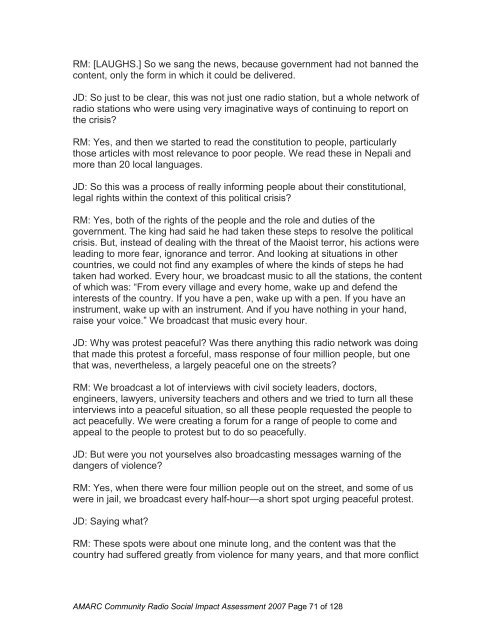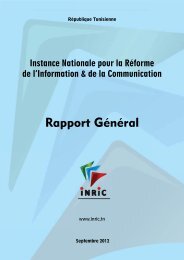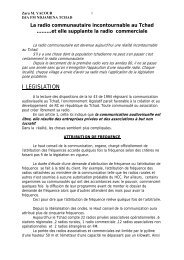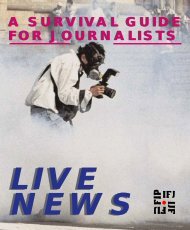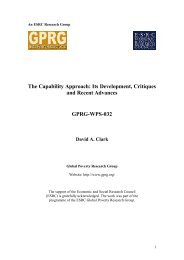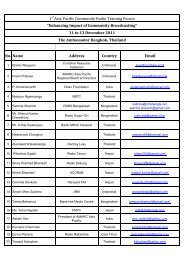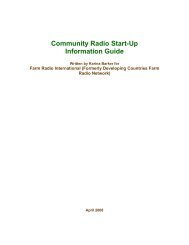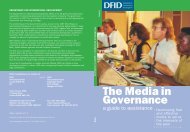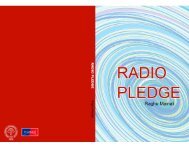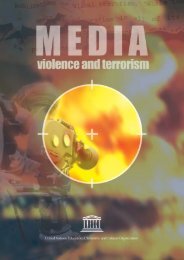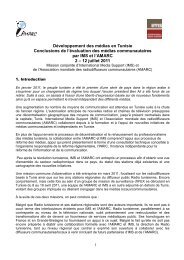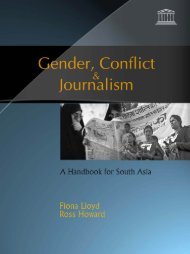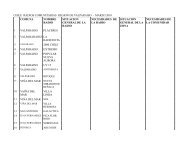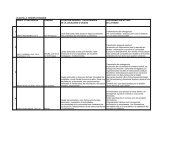Removing Barriers, Increasing Effectiveness - amarc
Removing Barriers, Increasing Effectiveness - amarc
Removing Barriers, Increasing Effectiveness - amarc
Create successful ePaper yourself
Turn your PDF publications into a flip-book with our unique Google optimized e-Paper software.
RM: [LAUGHS.] So we sang the news, because government had not banned thecontent, only the form in which it could be delivered.JD: So just to be clear, this was not just one radio station, but a whole network ofradio stations who were using very imaginative ways of continuing to report onthe crisis?RM: Yes, and then we started to read the constitution to people, particularlythose articles with most relevance to poor people. We read these in Nepali andmore than 20 local languages.JD: So this was a process of really informing people about their constitutional,legal rights within the context of this political crisis?RM: Yes, both of the rights of the people and the role and duties of thegovernment. The king had said he had taken these steps to resolve the politicalcrisis. But, instead of dealing with the threat of the Maoist terror, his actions wereleading to more fear, ignorance and terror. And looking at situations in othercountries, we could not find any examples of where the kinds of steps he hadtaken had worked. Every hour, we broadcast music to all the stations, the contentof which was: “From every village and every home, wake up and defend theinterests of the country. If you have a pen, wake up with a pen. If you have aninstrument, wake up with an instrument. And if you have nothing in your hand,raise your voice.” We broadcast that music every hour.JD: Why was protest peaceful? Was there anything this radio network was doingthat made this protest a forceful, mass response of four million people, but onethat was, nevertheless, a largely peaceful one on the streets?RM: We broadcast a lot of interviews with civil society leaders, doctors,engineers, lawyers, university teachers and others and we tried to turn all theseinterviews into a peaceful situation, so all these people requested the people toact peacefully. We were creating a forum for a range of people to come andappeal to the people to protest but to do so peacefully.JD: But were you not yourselves also broadcasting messages warning of thedangers of violence?RM: Yes, when there were four million people out on the street, and some of uswere in jail, we broadcast every half-hour—a short spot urging peaceful protest.JD: Saying what?RM: These spots were about one minute long, and the content was that thecountry had suffered greatly from violence for many years, and that more conflictAMARC Community Radio Social Impact Assessment 2007 Page 71 of 128


